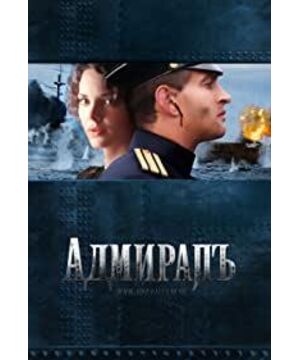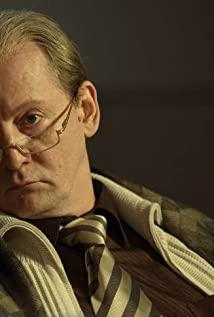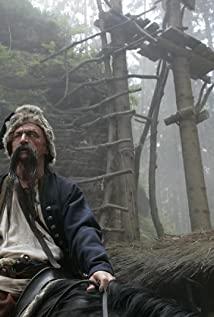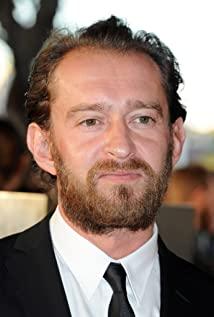When watching the movie, there was a small episode. Because the movie was subtitled in Russian and English, it didn't link the characters to history. I thought it was a fictional fantasy story. The film tells the story of a Russian Baltic battleship commander fighting the Germans in World War I, leading the way, and repeatedly making outstanding achievements. He was named commander of the Black Sea Fleet by the Tsar. In an upper-class dance party, the commander and his colleague’s wife Anna fell in love at first sight, and then there was a more depressing, Anna Kanilina VS Volensky-style love poem that hesitated but stopped but couldn’t stop. contacts. With the victory of the October Revolution, the traditional forces represented by the commander were eliminated one by one. In the bloody storm, he went against the current, abandoned his family and his son, sneaked into Siberia alone, and brought a group of old white troops to fight against the Red Army. Anna followed him to the hardest place in the hardest time, and fought side by side with him. In the end, the commander was betrayed by his colleagues, namely the French general, the Czech Legion and the Mensheviks. He was arrested by Cheka, executed secretly and thrown into the ice cave. Anna was released from prison after decades of imprisonment and starred in a classic film as a passerby. In the old-style Russian palace, the gorgeous but no-show heroine recalled the acquaintance at the beginning of the year. The man was in a dimly lit place...the past was like smoke.
The more I looked at it, the more strange it became. I realized that when I saw the second half, this handsome and enduring hero was the reactionary warlord and the leader of the white bandit Kolchak. In the movie, Kolchak is as brave as a Cossack, as wise as Kutuzov, as ingenious as Pushkin, and as in appearance as Bondar Chuk. In short, the goulash with caviar, vodka, potatoes and all the good things that Russia should have Alive.
If the film reflects the historical reflections of Russia today, this film does not seem to be like that, because its accurate name should be "Admiral Kolchak's Troublesome Extramarital Affairs", just the story structure In the end, it seems a bit of a joke. Furthermore, if it is to show that Russia has made some kind of "thumping" and "remorseful" amendments to the past value system, it seems that this kind of Pose is not so fashionable now. I have contacted some Russian artists, and they have more or less a little bit of it. The complex of the Great Patriotic War is still very reluctant and nostalgic for the good times of being a big brother and being alone. Of course, from their works, you can also see the original paintings of the Orthodox Church appearing, and the Winter Palace is no longer as hideous and dilapidated as shown in Eisenstein's movies. It is said that Denikin, the leader of the exiled White Army who died in the United States 58 years after his death, was reburied in Moscow as a patriotic general. The destruction of the family of Nicholas II, the last tsar of the Romanov dynasty, became compassionate. Of the playwrights are racing to capture the topic. In short, the past is correct and incorrect, the present is right and wrong, glory and failure, great and humble, Paul Kochakin and Denikin, Gorky and Kolchak, Tolstoy and Trotsky Both Putin and Pushkin were dispelled, flattened and crushed by the reality of consumerism, creating a vast and mottled post-modern cultural landscape.
A Russian told me that the most popular thing in Russia now is nationalism. No matter who is who, if he or she can represent a powerful Russia in a certain period of history, then he or she is a popular star. In a word, is it cool enough. Kolchak's feat of leading the Russian team to defeat the German team in the Baltic Sea clearly falls into this category.
The opening chapter of "Admiral" is a splendor of personal heroism: Kolchak arranged torpedoes in the Baltic Sea and waited for the Germans to subdue. Unexpectedly, he encountered the enemy head-on on his return journey, and the Russian army gradually became weak after a desperate confrontation. At the time of the crisis, Kolchak, as the captain, let the remaining hundred of his subordinates stay out of the camera to make soy sauce. He was wounded and rushed to the cannon. Then he made a decisive decision and ordered the warship to retreat into the torpedo area. This is a dangerous move, which will set fire to oneself if not paying attention. However, the Russian army cleverly avoided its torpedo formations, while the German warships in pursuit of them were destroyed by thunder. Amid the flames of the enemy ship's explosion, the Hollywood triumphant song played, Kolchak's tall image rushed toward his face, his eyes piercing and piercing. Wow! Awesome!
Encyclopedia, I was surprised to find that Kolchak himself is more handsome than the actor Konstantin Habinski, and his official profession is an Arctic explorer and hydrologist, and he can speak four foreign languages, including Chinese! Playing racing on the snow, and also engaging in literature, soaking up the style of the young literary young women in the style of Dongnia—the kind with high click-through rate.
As for the commander of the Black Sea Fleet, it is just a side job.
View more about Admiral reviews











